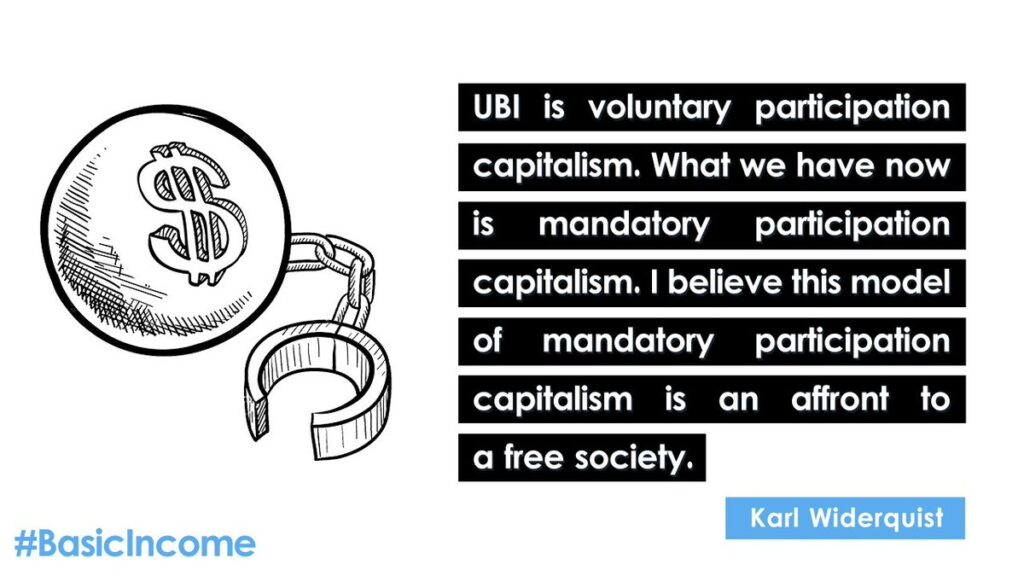Mandatory Participation Series Contents
According to Henry David Thoreau, “the mass of men lead lives of quiet desperation.” I think it’s more accurate to say the mass of people lead lives of manufactured desperation. We, as a people, are not in a desperate struggle to produce enough food, shelter, clothing, and other necessities of life for everyone. We can do that with ease. We worked our way out of that struggle long ago, if it was ever real at all. We are instead in a challenging struggle to provide more luxuries and leisure without destroying the environment that sustains us. Yet, the mass of people as individuals still often find themselves in a desperate struggle to maintain access to food, shelter, clothing, and other necessities of life.

That is manufactured desperation. Our legally mandated default position for all but the wealthy few is economic destitution. We have to continually work and work and work to maintain access to food, shelter, and clothing. Few of us can save enough to take significant time off before we’re too old to work anyway. And some of us live in tents right in the middle of cities with more than enough vacant housing for everyone.
It’s not necessary. It’s not helpful. It’s not healthy.
The way out is simple. Free ourselves from the belief in mandatory participation for all but the wealthy few and embrace a UBI for everyone.
AUTHOR’S NOTE: Most of the posts in this series were written with the intention of going into my forthcoming book, Universal Basic Income: Essential Knowledge for MIT Press, and many, if not most, of the ideas presented here did make it into the book, but the publisher suggest I soften the wording and some of the arguments, because as is, in this version of it, “the anti-UBI crowd seems like a bunch of mustache-twirling robber barons,” and she rightly thought that the antagonistic stance would be less convincing than more confrontational one here. So, for the book, I made those changes, but I liked what was left out as well. I thought there must be a place for it. And I decided that place was on my blog. I refer everyone to the book because it has a different approach; because it benefits from peer review, copyediting, and more extensive proofreading; and because it has important ideas that aren’t here. Also, many of the arguments here are developed more fully in other books and articles of mine, most of which you can find on my website: www.widerquist.com.
Karl Widerquist, Karl@Widerquist.com
Hi Karl, I watched you on Chenphilosophy and it was the best video I’ve ever watched
Question is like this. My brother brought up the point that even if we had UBI, implementing it might be an issue given the nature of politics being so corrupt.
For example would you trust Biden to implement UBI.
Or do you think it would be able to implemented without the process being corrupted as corruption has a way of getting its way. Especially in our current climate
So the question is what do we need to change in order for something like UBI to be handled without corruption or do you think it could be implemented in the current state of things?
Thanks
Sam
Yes, the legalized corruption we call “campaign donations” is a huge problem. The USA isn’t a true democracy and won’t be ’til we change that. That issue is just as important as UBI. Whether that problem makes UBI impossible until it’s fixed is uncertain. The climate looks bad right now, but the political climate changes quickly. The end of slavery looked beyond the realm 10 years before it happened, so did the new deal, and same-sex marriage. So, I don’t know exactly what we need to change to get UBI introduced, but I’m hopeful.